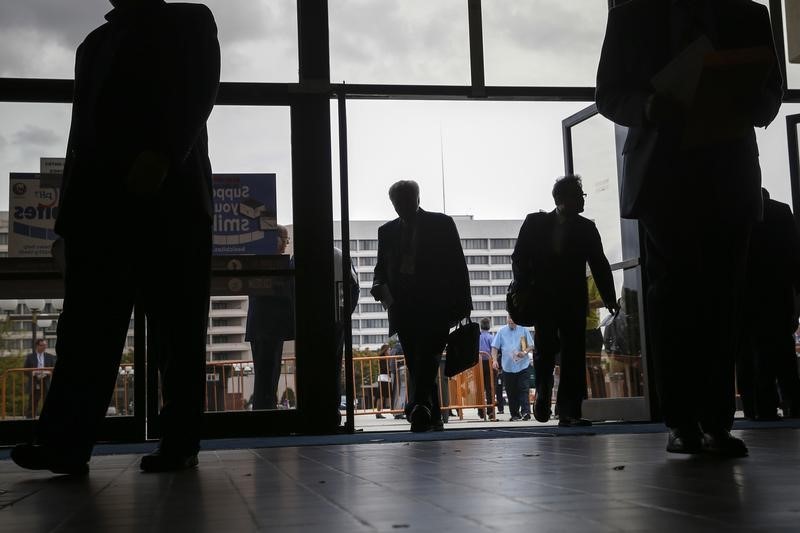Intriguing Elections Loom as IMF and World Bank Tackle Global Challenges
Financial leaders from around the world are gathering in Washington this week for the annual meetings of the International Monetary Fund (IMF) and World Bank. These meetings are taking place under the shadow of geopolitical conflicts, economic slowdowns, and the upcoming U.S. presidential elections.
More than 10,000 participants from finance ministries, central banks, and civil society organizations are expected to engage in discussions aimed at boosting global economic growth, addressing debt issues, and financing the transition to green energy.
Starting today and intensifying later in the week, the meetings may mark the last participation of U.S. Treasury Secretary Janet Yellen. Yellen has played a key role in the Biden administration's economic and climate initiatives and had indicated she would step down from public service at the end of President Joe Biden's current term in January.
One of the highlighted topics expected at the meetings is the rising anti-China trade sentiment and industrial policies, especially in light of the Biden administration’s recent tariff increases on Chinese goods, including electric vehicles, semiconductors, and solar products.
On Tuesday, the IMF will announce its updated global growth forecasts. IMF Chief Kristalina Georgieva signaled a modest outlook last week. Georgieva emphasized that the global economy is grappling with high debt, which is slowing medium-term growth, but pointed to pockets of resilience, particularly in the U.S. and India, which are helping offset ongoing weaknesses in China and Europe.
The annual meetings will also address liquidity issues affecting emerging markets, which are struggling with high debt servicing costs and reduced external aid, causing delays in development investments.
Last year's meetings were overshadowed by conflicts in the Middle East, whose economic impact was largely confined to the region. Georgieva stressed the potential global economic risks associated with disruptions in oil and gas deliveries.
Support for Ukraine is another key agenda item, with G7 countries working towards a political agreement for a $50 billion loan backed by frozen Russian assets by the end of October. This financial support is partly seen as a precaution against a potential election victory by Donald Trump, who had previously expressed an intention to withdraw from Ukraine.
Despite urgent issues, World Bank and IMF officials are committed to focusing on actionable solutions at the meetings. World Bank President Ajay Banga emphasized the importance of implementing effective measures, such as developing a new scorecard to accelerate project preparation and improve development outcomes.
The meetings coincide with the 80th anniversary of the founding of the IMF and the World Bank, marking a moment of reflection and forward action for the institutions.


